Odetta
Odetta

Odetta Holmes, born on December 31, 1930, and known professionally as Odetta, was a renowned American singer whose impact earned her the title "The Voice of the Civil Rights Movement." Her musical repertoire spanned American folk music, blues, jazz, and spirituals, making her a pivotal figure in the folk music revival of the 1950s and 1960s.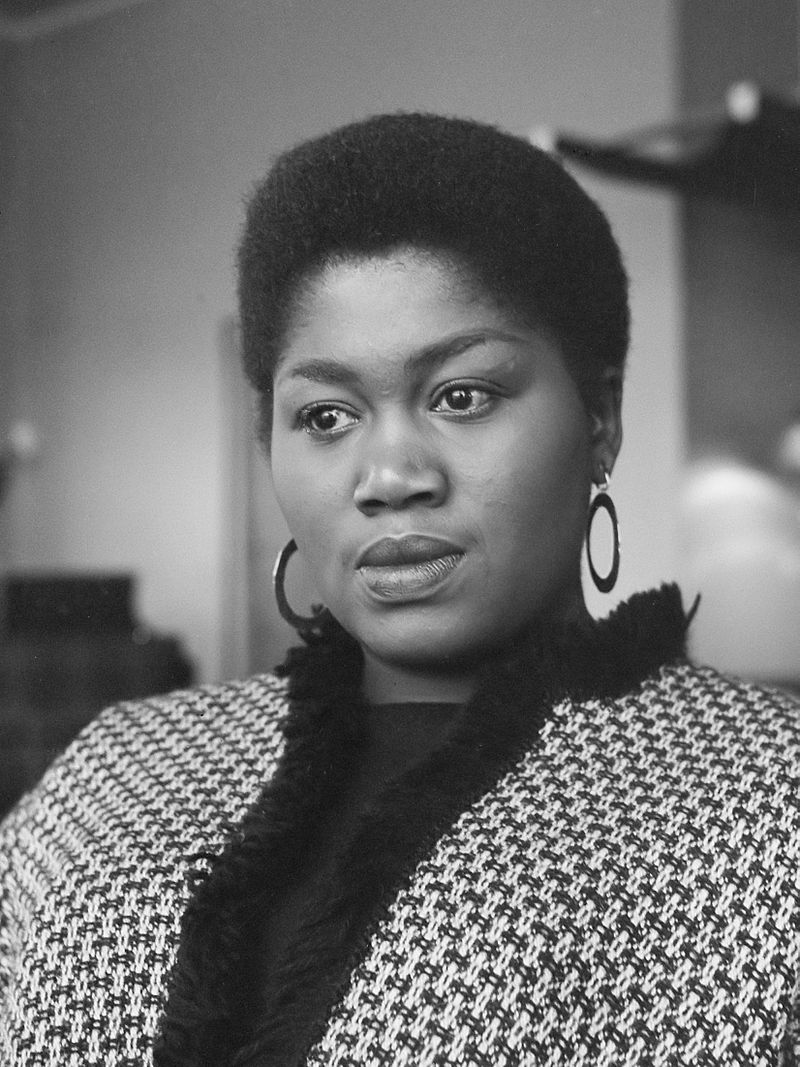
Odetta's influence extended to numerous artists of her time, including Bob Dylan, Joan Baez, Mavis Staples, and Janis Joplin. She was instrumental in shaping the direction of American folk music, and her contributions left an indelible mark on the cultural landscape.
Her rendition of "Take This Hammer" was recognized by Time magazine in 2011, earning a place on its list of the 100 Greatest Popular Songs. Odetta's significance went beyond her musical talents; she was admired by civil rights icons like Rosa Parks and Martin Luther King Jr., with the latter referring to her as the queen of American folk music.
Odetta's legacy continues to resonate, not only through her timeless recordings but also through the profound impact she had on the social and cultural movements of her era. Her voice remains a symbol of resilience, hope, and the enduring struggle for equality and justice.
Odetta Holmes, born in Birmingham, Alabama, began her journey into music at a young age. After her father's passing, she and her mother relocated to Los Angeles, where she eventually took her stepfather's last name, Felious. Odetta's vocal talents were recognized by her teacher in 1940, prompting her to pursue operatic training at the age of thirteen.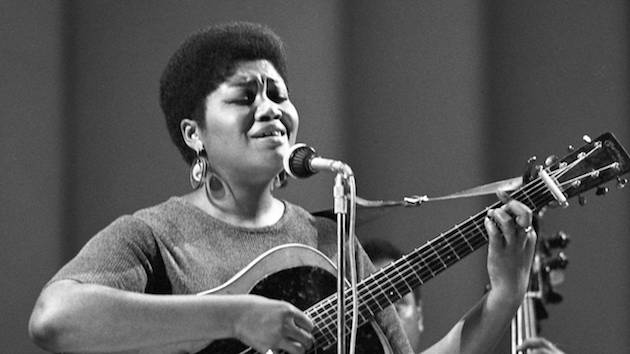
Despite facing doubts about her prospects as a large black girl in the opera world, Odetta made her professional debut in musical theater and later joined the national touring company of Finian's Rainbow. However, it was during her time on tour that she became enamored with folk singing, ultimately leading her to concentrate on that genre after 1950.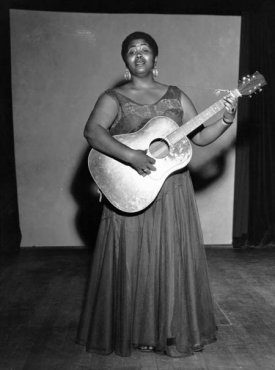
Odetta gained recognition for her performances at notable venues like the Blue Angel in New York City and the hungry i in San Francisco. She recorded albums such as "Odetta and Larry" with Larry Mohr for Fantasy Records during the early 1950s. Her solo career took off with albums like "Odetta Sings Ballads and Blues" (1956) and "At the Gate of Horn" (1957), followed by the successful "Odetta Sings Folk Songs" in 1963.
Her appearance on "Tonight with Belafonte" in 1959 and her duet with Harry Belafonte on "There's a Hole in My Bucket" further solidified her status in the music industry. Martin Luther King Jr. hailed her as "The Queen of American Folk Music" in 1961, recognizing her immense contribution to the genre and the civil rights movement.
Odetta's performance at the March on Washington in 1963, where she sang "O Freedom," remains one of her most iconic moments. She viewed her role in the civil rights movement as that of a soldier in a larger army, highlighting her commitment to social justice through her music and activism.
During her career, Odetta expanded her musical repertoire by incorporating band arrangements into several albums, deviating from her solo performances. Albums like "Odetta and the Blues" (1962) and "Odetta" (1967) showcased a more jazz-influenced style, highlighting her versatility as an artist. In 1968, she delivered a memorable performance at the Woody Guthrie memorial concert, further solidifying her status as a legendary figure in American folk music.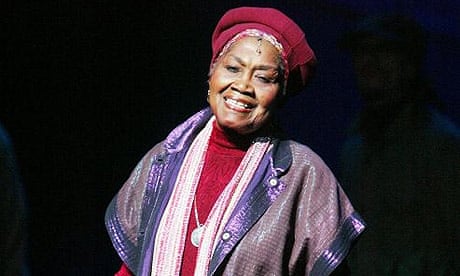
Beyond music, Odetta also pursued acting and appeared in several films, including "Cinerama Holiday" (1955), a cinematic adaptation of William Faulkner's "Sanctuary" (1961), and "The Autobiography of Miss Jane Pittman" (1974). Additionally, she made a television appearance in a 1961 episode of "Have Gun – Will Travel," portraying the wife of a condemned man.
Throughout her personal life, Odetta experienced two marriages, first to Dan Gordon and then to Iverson Minter, both of which ended in divorce. She also had an engagement to Garry Shead. Notably, she had a close relationship with blues singer-guitarist Louisiana Red, though they were not formally married.
Throughout her later career, Odetta remained active in both her musical performances and her advocacy for civil rights and spirituality.
In May 1975, she made an appearance on public television's Say Brother program, delivering a performance of "Give Me Your Hand" and discussing topics such as her spiritual beliefs, her musical influences, and her involvement in the civil rights movement.
In 1976, Odetta took part in the U.S. Bicentennial opera "Be Glad Then, America" by John La Montaine, portraying the Muse for America alongside notable artists such as Donald Gramm and Richard Lewis.
In 1982, she served as an artist-in-residence at the Evergreen State College in Olympia, Washington.
Despite releasing only two albums between 1977 and 1997, Odetta experienced a resurgence in her recording and touring activities starting in 1998. She released albums such as "To Ella" (1998), "Blues Everywhere I Go" (2000), "Looking for a Home" (2002), and "Gonna Let It Shine" (2007), receiving Grammy nominations for the latter two.
Her contributions to music and civil rights were recognized with prestigious awards and honors. In 1999, President Bill Clinton awarded her the National Medal of Arts, and in 2004, she received the "Visionary Award" at the Kennedy Center. The Library of Congress honored her with the "Living Legend Award" in 2005.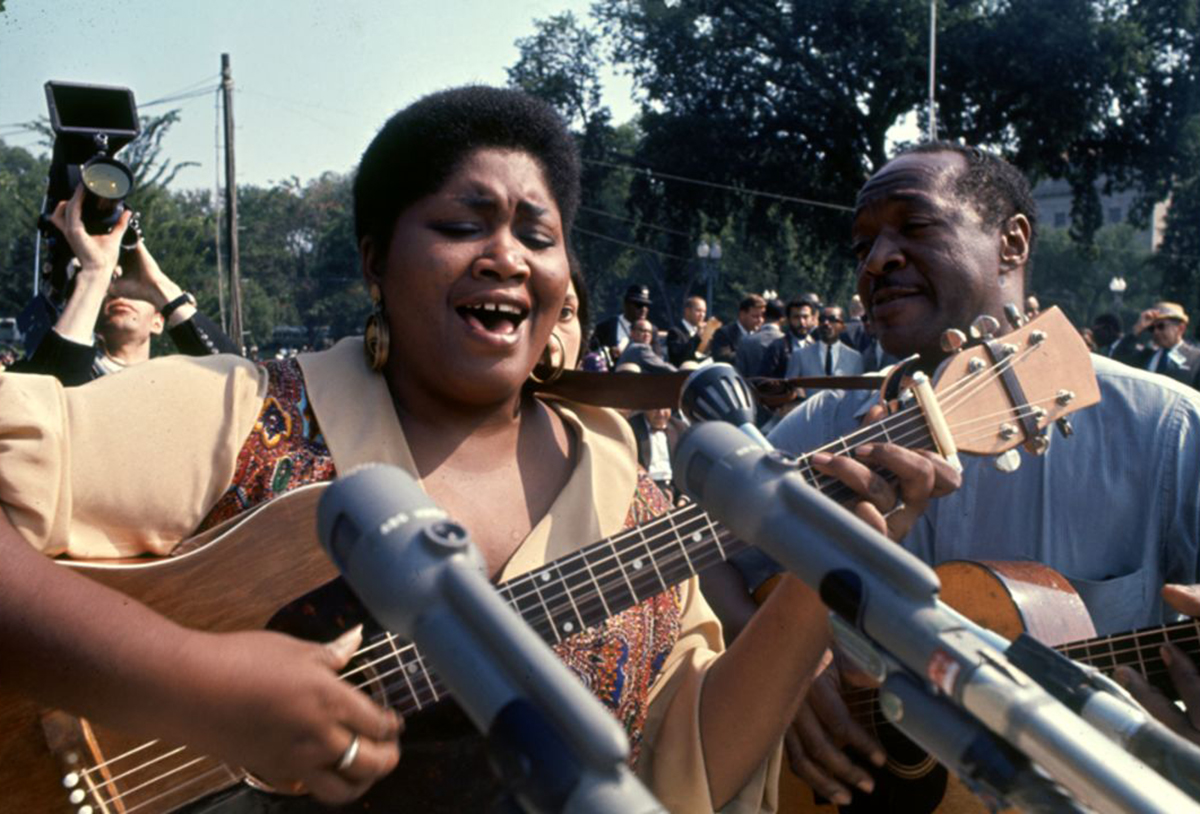
Odetta's influence was highlighted in the 2005 documentary film "No Direction Home" directed by Martin Scorsese, which showcased her impact on Bob Dylan and included archival footage of her performances.
In 2006, she toured extensively in the U.S., Canada, and Europe, participating in events such as a human rights conference in Latvia and receiving the Lifetime Achievement Award from the Winnipeg Folk Festival.
A tribute concert to Odetta was held in 2007 at the Rachel Schlesinger Theatre, featuring performances and video tributes by esteemed artists such as Pete Seeger, Harry Belafonte, and Peter, Paul and Mary.
Her album "Gonna Let It Shine" earned a Grammy nomination in 2007, and she embarked on a Fall Concert Tour titled "Songs of Spirit" to promote the album across North America.
References
- Colin Larkin, ed. (1992). The Guinness Encyclopedia of Popular Music (First ed.). Guinness Publishing. p. 1852/3. ISBN 0-85112-939-0.
- a b c d e f Weiner, Tim (December 3, 2008). "Odetta, Voice of Civil Rights Movement, Dies at 77". The New York Times. No. December 3. Retrieved December 3, 2008.
- ^ Kreps, Daniel (March 12, 2008). "Folk Singer and Civil Rights Activist Odetta Dead at 77". Rolling Stone. Retrieved April 24, 2013.
- ^ Winter, Jessica (October 24, 2011). "'Take This Hammer". Time. Retrieved December 30, 2020.
- ^ McDonnell, Evelyn (October 9, 2018). Women Who Rock: Bessie to Beyonce. Girl Groups to Riot Grrrl. Hachette. ISBN 978-0316558860. Retrieved August 9, 2019.
- ^ Tim Weiner, "Odetta, Voice of Civil Rights Movement, Dies at 77," New York Times, Dec. 3, 2008.
- a b Weil, Martin; Bernstein, Adam (December 4, 2008). "Odetta: Matriarch for Generation of Folk Singers". Washington Post. p. B6. Retrieved December 4, 2008.






































